Is managing your money becoming a constant struggle?
Many people find it tough to keep track of their expenses and savings, leading to financial stress. The key to overcoming this challenge lies in mastering budgeting best practices.
A solid budget isn’t just a luxury; it’s essential.
Consider how you can prepare for unexpected expenses or save for a big purchase. Without a clear budget, it’s easy to lose sight of your financial goals. A well-crafted budget can help you see where your money is going and identify areas where you can save.
What is Budgeting?
Budgeting is like a GPS, it serves as a plan for how to use your money for needs, savings, and investments. It helps you manage your money and reach your goals by tracking spending and finding ways to save.
To make this plan effective, good data is needed, requiring accurate numbers and regular updates. Involving the right people ensures everyone knows their role, while open communication fosters collaboration. Regular reviews keep the budget aligned with the company’s finances.
Why Budget Strategy is Important?
Achieving financial stability and success requires more than hope; it demands a careful and disciplined approach to budgeting, particularly in business. Budgeting is an essential tool for financial planning, involving a detailed plan for anticipated income, expenses, and financial goals over time.
For businesses, a strategic budget is essential for effective financial management and avoiding monetary issues. A well-structured budget not only serves as a financial roadmap but also offers several key benefits:
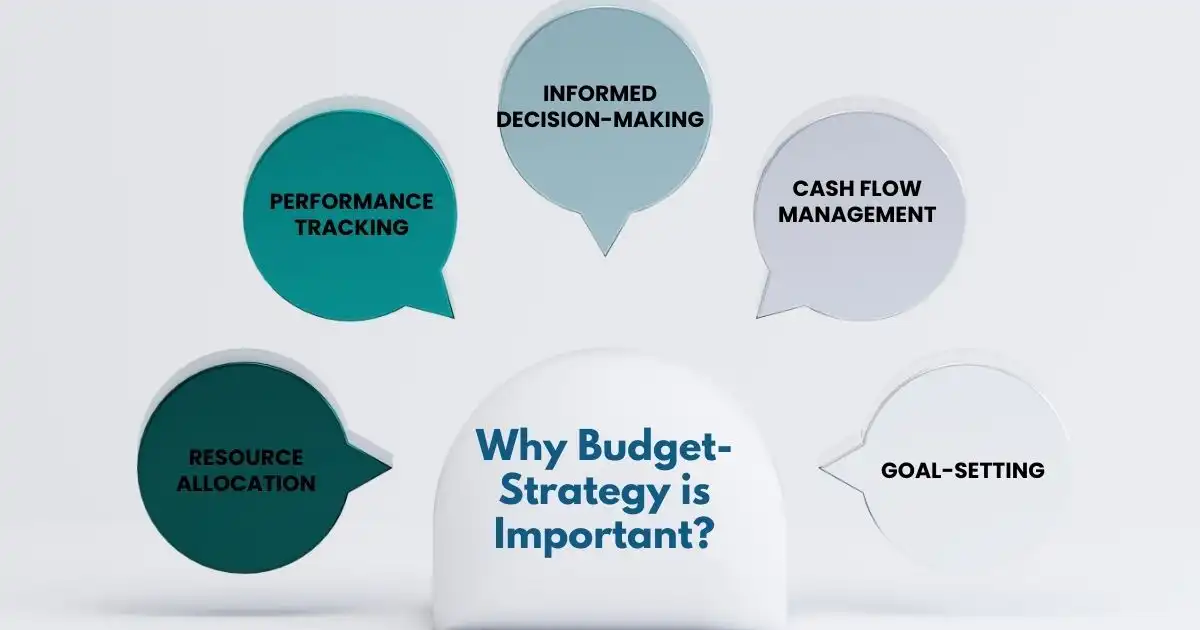
- Resource Allocation – Prioritizes needs and objectives for better distribution.
- Performance Tracking – Acts as a benchmark for monitoring financial performance and making necessary adjustments.
- Informed Decision-Making – Provides a clear financial picture for better investment and expansion choices.
- Cash Flow Management – Anticipates changes in cash flow, reducing the risk of shortages.
- Goal-Setting – Helps set and achieve financial goals, fostering growth and success.
What Are the Steps to Create a Successful Budget?
Making a business budget takes effort, and it’s best to treat it like a project. Here’s how to create a clear and practical budget:
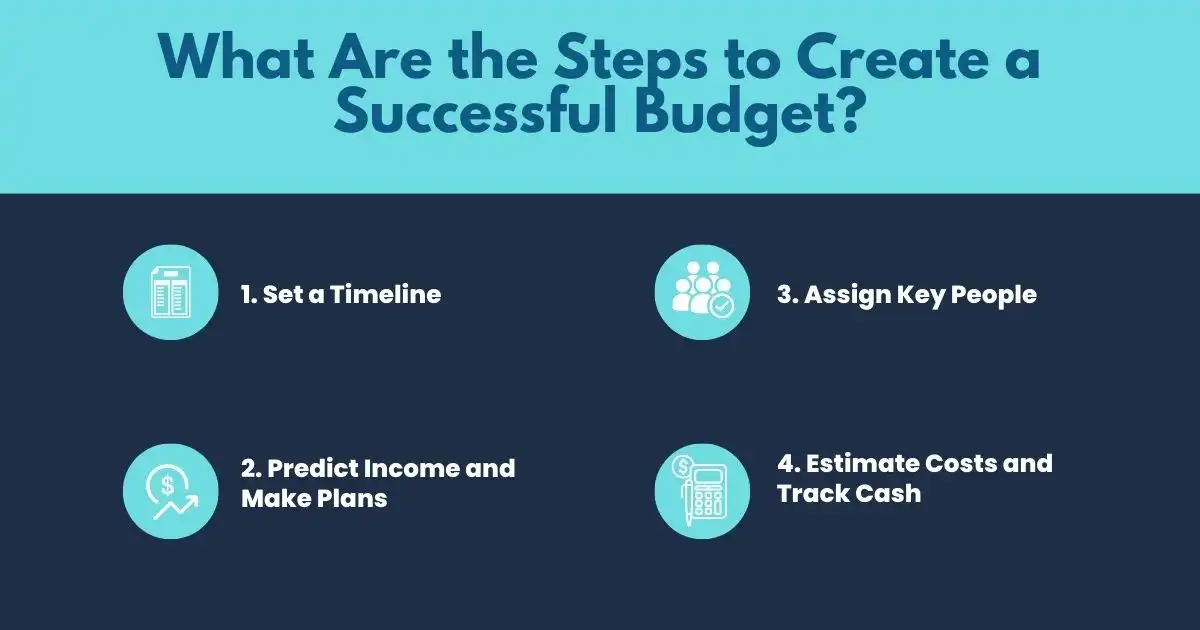
1. Set a Timeline
Create a budgeting calendar to set deadlines for preparation, review, and approval. Plan early, especially if your financial year starts on January 1st—begin budgeting by October. This ensures enough time to review everything and make any necessary changes.
2. Predict Income and Make Plans
Estimate how much money your business will make. Plan for different scenarios (best, worst, or average), and align the budget with your strategic goals. This ensures you’re allocating resources effectively for growth. Involve your team to make sure they know how the budget supports their roles.
3. Assign Key People
Assign tasks to team members to keep the budget process on track. Make sure everyone knows their responsibilities, such as reviewing and approving reports. Consider involving employees in the budgeting process to gather ideas and promote financial ownership.
4. Estimate Costs and Track Cash
After predicting income, estimate essential costs, like salaries, rent, and other operational expenses. Track cash flow to avoid shortages. Account for seasonal variations in revenue and expenses to ensure the budget accurately reflects these changes. Set aside funds for emergencies or unexpected events (contingencies).
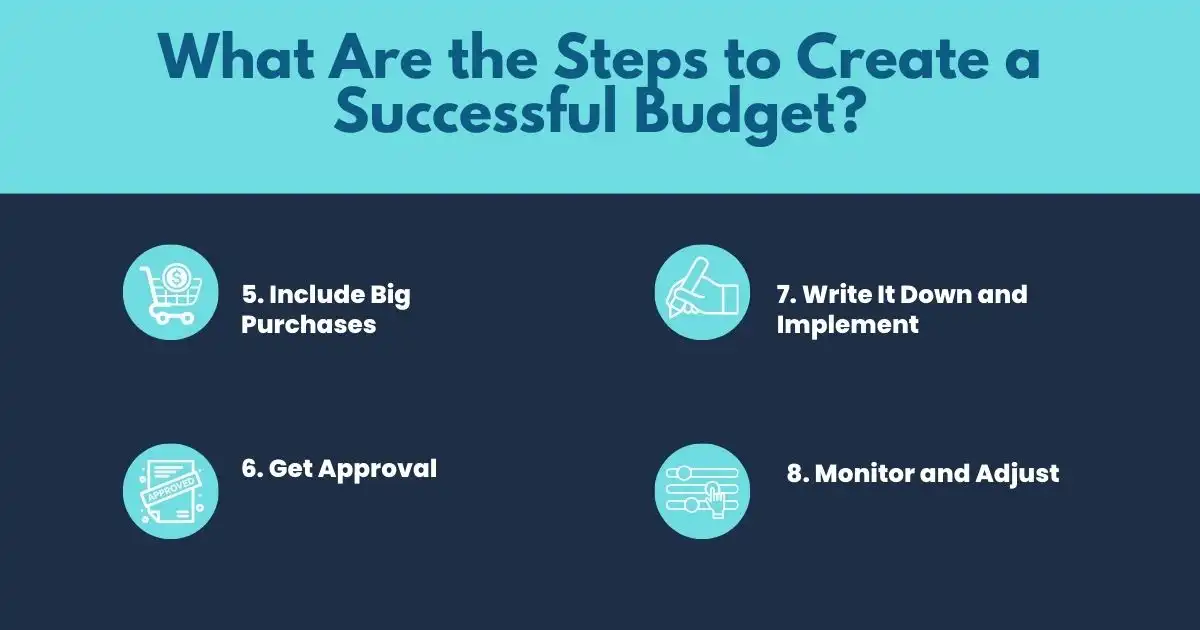
5. Include Big Purchases
Plan for large purchases, such as new equipment or upgrades, and consider how they’ll impact future budgets. Account for depreciation and any long-term financial effects.
6. Get Approval
Present the budget to decision-makers and make sure it aligns with the company’s goals. Communicate expectations and budget goals to the team so everyone is accountable and understands their role in achieving financial success.
7. Write It Down and Implement
Once approved, document the budget and make a clear implementation plan. Ensure department heads and their teams are informed of their responsibilities. Start using the budget as soon as possible.
8. Monitor and Adjust
Regularly compare actual financial performance to the budget. Analyze any variances and make adjustments as needed. Conduct a formal review each quarter and treat the budget as a living document to keep your business on track.
What are the Common Roadblocks in Budgeting?
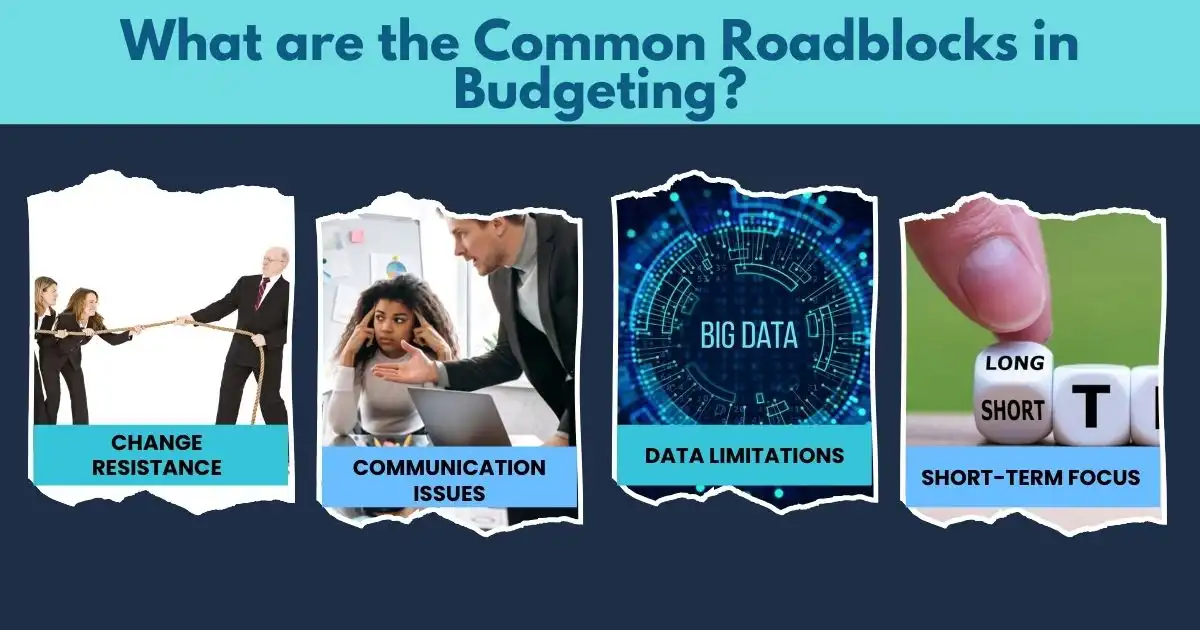
When trying to create a budget, you might face some challenges:
- Change Resistance – Letting go of old budgeting methods can be hard when trying new strategies like zero-based budgeting.
- Communication Issues – Different departments not talking to each other can cause problems, but regular meetings can help everyone share information.
- Data Limitations – You need accurate and timely data to make good decisions, and strong data tools can provide useful insights.
- Short-Term Focus – Focusing too much on quick money instead of long-term goals can lead to poor budgeting choices.
What Strategies Can Overcome Budgeting Roadblocks?
To tackle these challenges, here are some helpful strategies for developing a strategic budget:
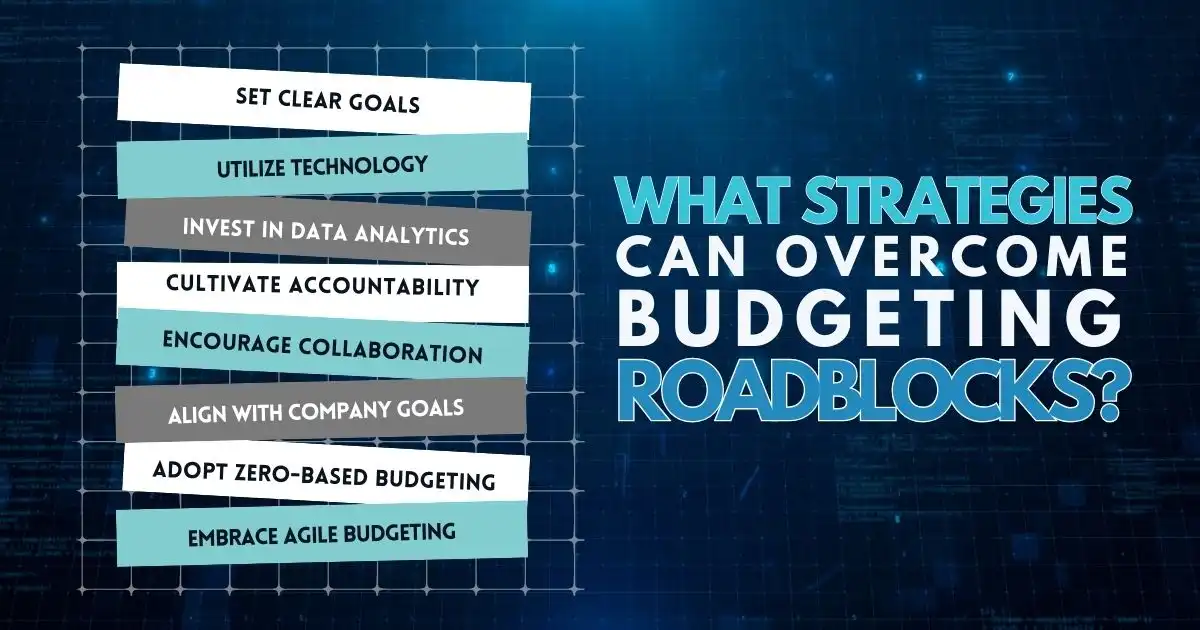
- Set Clear Goals – Create specific goals to measure success, track important numbers, and adjust your plans as needed.
- Utilize Technology – Use automation and online tools to make budgeting easier and more accurate.
- Invest in Data Analytics – Make decisions based on data by focusing on key numbers that show profits and strategy.
- Cultivate Accountability – Encourage everyone to take responsibility for their budgets by communicating clearly and providing training.
- Encourage Collaboration – Have regular meetings where different departments can share ideas and make budget changes together.
- Align with Company Goals – Look for obstacles that might stop your budget from meeting overall company goals.
- Adopt Zero-Based Budgeting – Justify every expense based on its importance to your goals to keep costs in check.
- Embrace Agile Budgeting – Regularly review and adjust your budget to adapt to new priorities.
What Are the Benefits of Strategic Budgeting in FP&A?
Financial planning and analysis (FP&A) are super important for businesses today. They involve planning budgets, forecasting, and analyzing data to help with decisions. Here are some key benefits of budgeting:
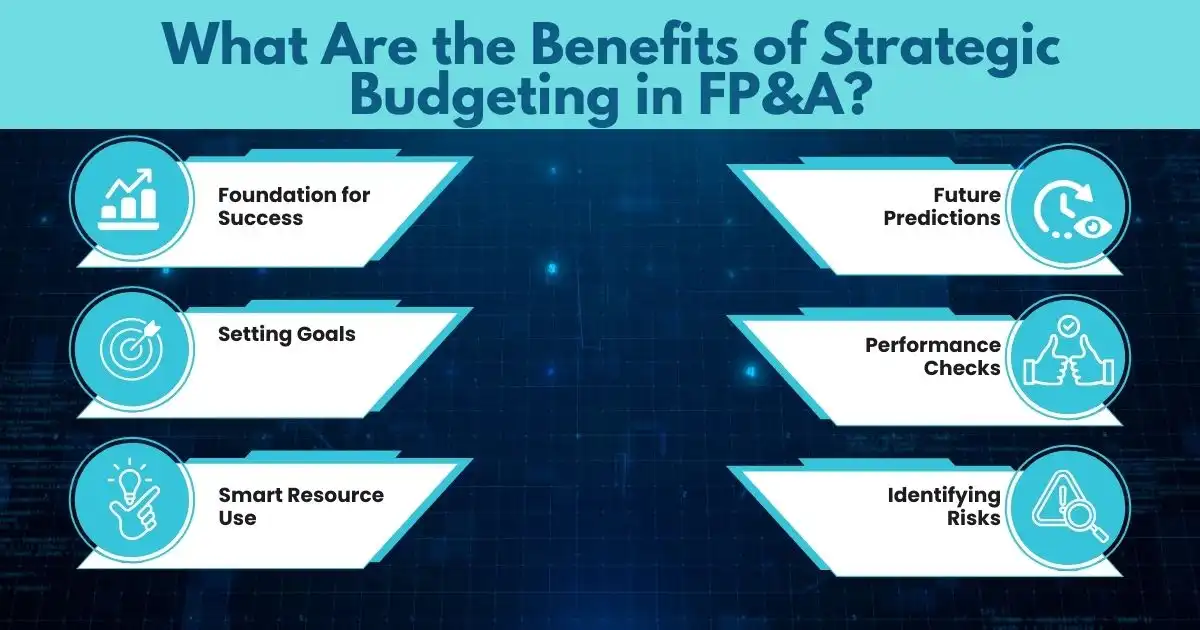
Foundation for Success
The budget helps predict how well the company will do, guiding future plans and cash flow.
Setting Goals
Budgets establish financial goals, helping everyone work toward the same target.
Smart Resource Use
Good budgeting ensures that money is spent wisely to reach these goals.
Future Predictions
Budgets help forecast future financial results based on past data.
Performance Checks
Comparing real results to budget goals shows where improvements are needed.
Identifying Risks
Budgeting helps find potential financial problems and plan ways to handle them.
Winning Through Effective Budgeting
To achieve financial stability and success, a careful and disciplined approach to managing money is necessary. Budgeting is an important tool for planning finances, enabling smart choices, future planning, and goal achievement.
A good budget goes beyond numbers, it includes the right people, accurate and timely data, and an organized process. Aligning the budget with the company’s overall strategy is essential for smooth operations and growth. Effective strategies can improve the budgeting process, making it fundamental for shaping a company’s finances.
FAQs
What is continuous budgeting?
Continuous budgeting is an ongoing process that allows businesses to adjust their budgets regularly based on changing circumstances. This method helps keep budgets up-to-date and relevant throughout the year.
Why is a comprehensive budget important?
A comprehensive budget covers all aspects of a business’s finances, providing a complete picture. It helps ensure that all resources are accounted for and that the organization can meet its financial goals effectively.
How does strategic budgeting work?
Strategic budgeting involves setting long-term financial goals and aligning the budget to achieve those goals. This approach helps businesses plan for the future while making informed decisions about spending and investments.
When should strategic budget planning take place?
Strategic budget planning should occur at the beginning of the fiscal year and regularly throughout the year. This timing ensures that the budget reflects the organization’s goals and adapts to any changes in the business environment.
